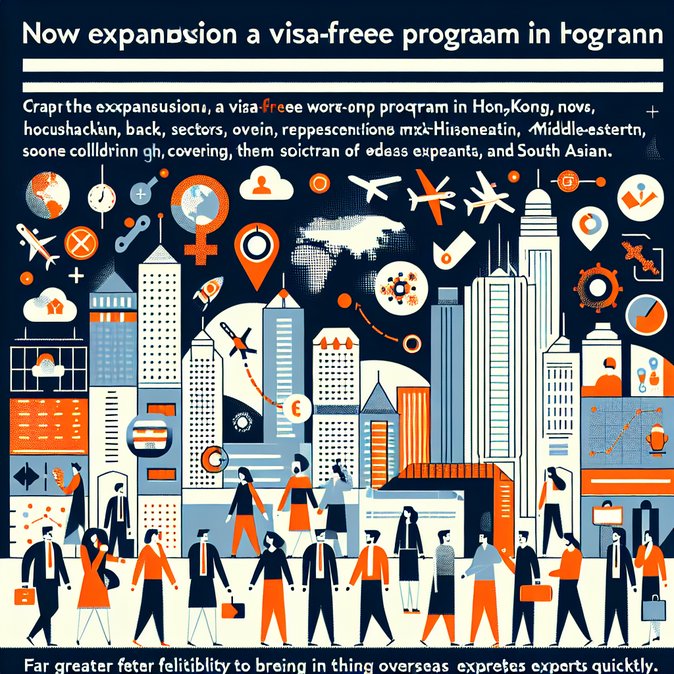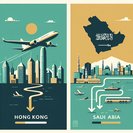
Hong Kong has widened its Immigration Facilitation Scheme for Visitors Participating in Short-term Activities (commonly called the ‘14-day work-without-visa scheme’), adding Environment, Occupational Safety & Health, Maritime, Think Tanks and Government-organised events to the list of designated sectors. The expansion, announced on 14 November, also raises the number of authorised invitation bodies from about 400 to roughly 490.
Under the scheme, overseas experts invited by an authorised Hong Kong entity may work legally for up to 14 days without an employment visa, provided the activity is project-based and non-recurring. Previously limited to 12 sectors—including finance, medical and innovation—the scheme has facilitated more than 38,000 short-term assignments since its 2024 rollout.
![Short-term Work Visa Scheme in Hong Kong expands to five new sectors]()
For multinational employers the new sectors are impactful. Maritime insurers can now fly in surveyors at short notice; global NGOs can host climate-related workshops; and government departments can bring overseas specialists for time-sensitive consultancy. HR teams should update internal mobility check-lists: invitation letters must reference the expanded sector list and be issued by one of the newly authorised organisations.
The authorities emphasise that the visitor must leave Hong Kong after 14 days or apply for the appropriate employment pass. Over-stays or scope-creep into regular work remain prosecutable offences. Compliance audits are expected to intensify as the scheme scales.
Hong Kong officials say the broader coverage cements the city’s ‘super-connector’ branding. While no new fee is introduced, the government hinted at future digitalisation of the invitation process—something mobility managers should monitor to maintain turnaround speed for urgent deployments.
Under the scheme, overseas experts invited by an authorised Hong Kong entity may work legally for up to 14 days without an employment visa, provided the activity is project-based and non-recurring. Previously limited to 12 sectors—including finance, medical and innovation—the scheme has facilitated more than 38,000 short-term assignments since its 2024 rollout.

For multinational employers the new sectors are impactful. Maritime insurers can now fly in surveyors at short notice; global NGOs can host climate-related workshops; and government departments can bring overseas specialists for time-sensitive consultancy. HR teams should update internal mobility check-lists: invitation letters must reference the expanded sector list and be issued by one of the newly authorised organisations.
The authorities emphasise that the visitor must leave Hong Kong after 14 days or apply for the appropriate employment pass. Over-stays or scope-creep into regular work remain prosecutable offences. Compliance audits are expected to intensify as the scheme scales.
Hong Kong officials say the broader coverage cements the city’s ‘super-connector’ branding. While no new fee is introduced, the government hinted at future digitalisation of the invitation process—something mobility managers should monitor to maintain turnaround speed for urgent deployments.










